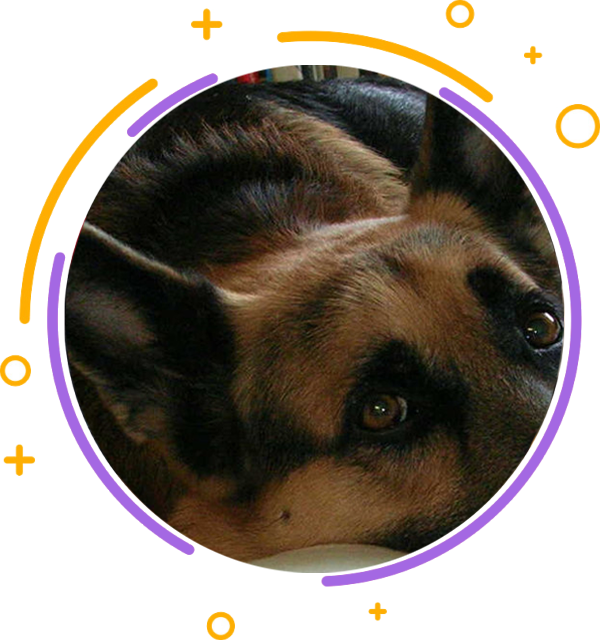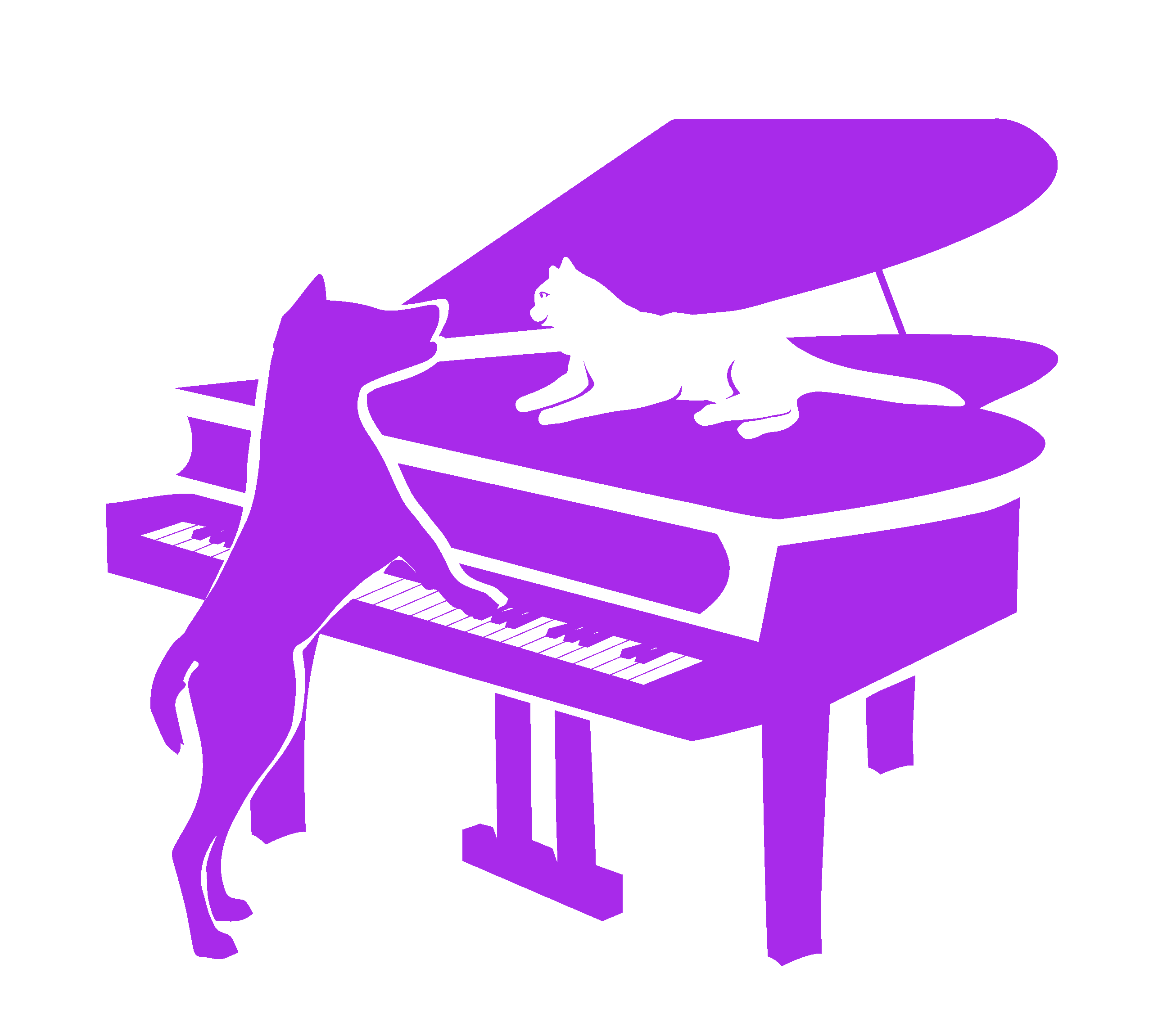LIVE WITH DR. KAREN
Who is Dr. Karen?
Dr. Karen Walwyn is a concert pianist and composer who had a beautiful German Shepherd dog named Miles. He sat with Dr. Karen every day while she practiced the piano. In preparation for upcoming concerts, she practiced Mozart, Beethoven, Schumann, along with Delores White, Ellis Marsalis, Adolphus Hailstork and other American composers.

HOW IT ALL STARTED
IT ALL STARTED WHEN…
I was practicing for a concert one afternoon when my dog, Miles (seen above) had come in my piano studio to sit next to my feet. I was playing something by Robert Schumann. (An example of work by Schumann from Naptime can be heard just above.) After some time, something inspired me to stop playing and start singing. Most who know my singing would beg me to stop! Miles apparently agreed with them because once I started singing, he came over to me to apparently inspect my mouth. He looked at me with horror and immediatley left the room!
After accepting my fall from grace as a singer, I wondered what would happen if I just stopped singing and would start playing without calling out to him. As soon as I started playing again, he came back into the room and sat beside my feet where he remained for the rest of my rehearsal.
There were a number of other instances where Miles made it very clear that not only was he listening to music but that he had preferences of what was pleasing and what was unacceptable!
Why me?
Before Dr. Karen started her research on animals and music, she reflected on a particular incident.
“Miles was one of the politest dogs I had ever known. One example of his courtesy was at my apartment elevator. He was always very careful when preparing to enter the elevator. If there was someone else waiting, he waited for them to enter the elevator first before he would walk into the elevator. He would do the same as we would prepare to walk through the glass double doors to leave the apartment building; however, on the day that I picked him from the doggy day care, I was made aware of his displeasure as soon as we left the building. As he exited the building, he aggressively pulled me to the side of the building just in front of the door. Before I knew it, he left an ‘unfortunate’ gift that would state his preference to never return to that facility.
I later inquired to what music they may have played for their guests. They admitted to having played whatever was on the radio stations.”
Dr. Karen started her research after Miles transitioned to doggy heaven and in his memory, she started the creation of her classical music therapy albums. Asked why did she love recording music for pets and composing music for pets? The answer is simple. I love making music. I love bringing a sense of comfort to my audiences. I feel privileged to be a part of the healing process for pets.
click here to watch the interview with Dr. Katy and Dr. Karen.

More Interviews with Dr. Karen
Classical with Claws
by Johanna Paulsson
with MAGASINET OM KLASSISK MUSIK & OPERA, (Opus Magazine)
translated by Henrik Karlsson, Music Therapist
The benefits of music are not limited to human beings. Playlists and music composed with pets in mind are in vogue. Opus Magazine has talked to composers and musicians who are used to audiences that bark and meow.
Stravinsky is said to have claimed that children and animals understood his music better than human grown-ups. Perhaps it is not so strange then that David Teie- ordinarily a cellist in the National Symphony Orchestra- has written scores with cat-listeners in mind. In November, radio station Classical FM broadcasted a show called Pet Sounds in collaboration with a shelter for cats and dogs. Studies have shown that classical music played at kennels can reduce stress levels in dogs, while fastidious kitties seem to prefer other genres.
The benefits of music are not limited to human beings. Playlists and music composed with pets in mind are in vogue. Opus Magazine has talked to composers and musicians who are used to audiences that bark and meow.
Stravinsky is said to have claimed that children and animals understood his music better than human grown-ups. Perhaps it is not so strange then that David Teie- ordinarily a cellist in the National Symphony Orchestra- has written scores with cat-listeners in mind. In November, radio station Classical FM broadcasted a show called Pet Sounds in collaboration with a shelter for cats and dogs. Studies have shown that classical music played at kennels can reduce stress levels in dogs, while fastidious kitties seem to prefer other genres.
“Animals understand music better than we do”
(Stravinsky)
Washington, D.C., is also home to dog-loving pianist Karen Walwyn. Besides teaching and performing as a concert pianist she also runs the record company Allegro Paws: Classical Music for Pets. Karen Walwyn is an accomplished composer herself but when it comes to the pet-audience her idea is to present classical music- from Baroque to Impressionism- written by others in a way that meets the animals’ particular needs. Her records are adapted to different situations, for example dogs who are alone at home or who are afraid of fireworks.
When I put together the music, I combine form and temperament to facilitate relaxation or alertness, she says. In our conversation, she shares plenty of dog anecdote from her own life as well as from others.
Allegro Paws was founded in memory of her German Shepherd Miles. As a puppy, Miles would lie at my feet while I was practicing a piece by Schumann. Once, I got this idea to try singing to him. Miles got up and sniffed my mouth and looked at me very strangely and then left the room. After I got over the shock of him leaving, I decided to see what would happen if I started playing again without calling him. He came back immediately and settled down in his favorite spot.
“With its even tone distribution, the piano seems particularly suited to pet-music.”
(Walwyn)
>Why not just put on NPR?
Some wonder why can’t we just leave the radio on for pets. But take NPR for example, where the music spans from Stravinsky’s Rite of Spring to Tchaikovsky’s symphonies to Mozart sonatas, the dynamics and tempos go up and down all the time and that just causes stress.
Composers That Have Left Paw Impressions
It is said that Domenico Scarlatti’s cat Pulcinella stepped on the keyboard, thereby giving the Italian composer the idea for cembalo sonata K30/L499 in G minor, later known as “The Cat Fugue”.
In his later years, British composer Edward Elgar had two dogs. The orchestral piece “Mina” is named after his beloved Cairn terrier.
French impressionist Maurice Ravel was a true friend of felines, and particularly enchanted by Siamese cats. One can tell from the meowing in “Duo miaulé” from the magical opera “The Child and the Enchantments”.
To read more, check out KLASSISKT MED KLÖS, MAGASINET OM KLASSISK MUSIK & OPERA (Opus Magazine) by Johanna Paulsson, June 2019.
http://opusmagasin.se/klassiskt-med-klos/
Dr. Karen remembers..
Miles always ran and tried to hide under the bed although he couldn’t quite get his full body underneath the bed during the thunderstorms. He was a giant German Shepherd but he thought he was a tiny puppy! Allegro Paws: Classical Music for Pets™, “Leisure Time” was created for your favorite family member to enjoy a cozy and comfortable environment either during thunderstorms or firecrackers or with an active household. The evening time is the perfect time to play “Leisure Time” for your pet to help him relax from a busy day with the family or from a day of unusual or stressful distractions.
For more information on Dr. Karen, please visit www.karenwalwyn.com.
